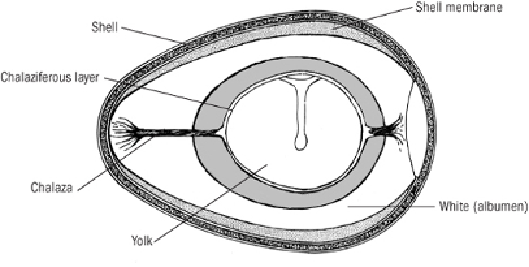Agriculture Reference
In-Depth Information
Alternatively, when eggs are hatched in an incubator, just the slightest variation
in temperature will cause enormous problems. You'll experience everything from late
hatches of sickly, weak chicks to early hatches of premature chicks that do not pull their
yolk sac inside their body and die. While you are tinkering with incubator humidity and
temperature controls, wondering when you'll have chicks, a hen can set outside in the
cold, on straw placed on the ground, and hatch every egg right on time.
Healthier Chicks from Hens
Many breeders testify that chicks raised with a mother hen are healthier and grow
stronger than those raised under lights in a brooder. Years of doing it both ways, and
seeing the results, leads me to believe that the mother hen route is the best route. It may
not be practical for large operations, but using mother hens as hatchers is a hassle-free
method with an excellent outcome for the backyard poultry raiser who only wants to
raise 25 to 50 young a year. Chicks raised with a mother hen are exposed to diseases
and pests at an early age, thereby developing immunities and tolerances to these early in
life. They seem to survive diseases such as coccidiosis better than those raised in large
groups together under lights.
THE AVIAN EGG
Parasites While Incubating
One problem that can occur when using a broody hen is a lice or mite infestation. If
she's infected, she will transfer the parasites to her young chicks at an age when they
cannot successfully handle them. In the worst-case scenario, mother hen will die from
her incubation-weakened condition combined with the stress of the insect invasion, and
the babies simply cannot fight off a heavy parasite infestation. Knowing this, it's never-

